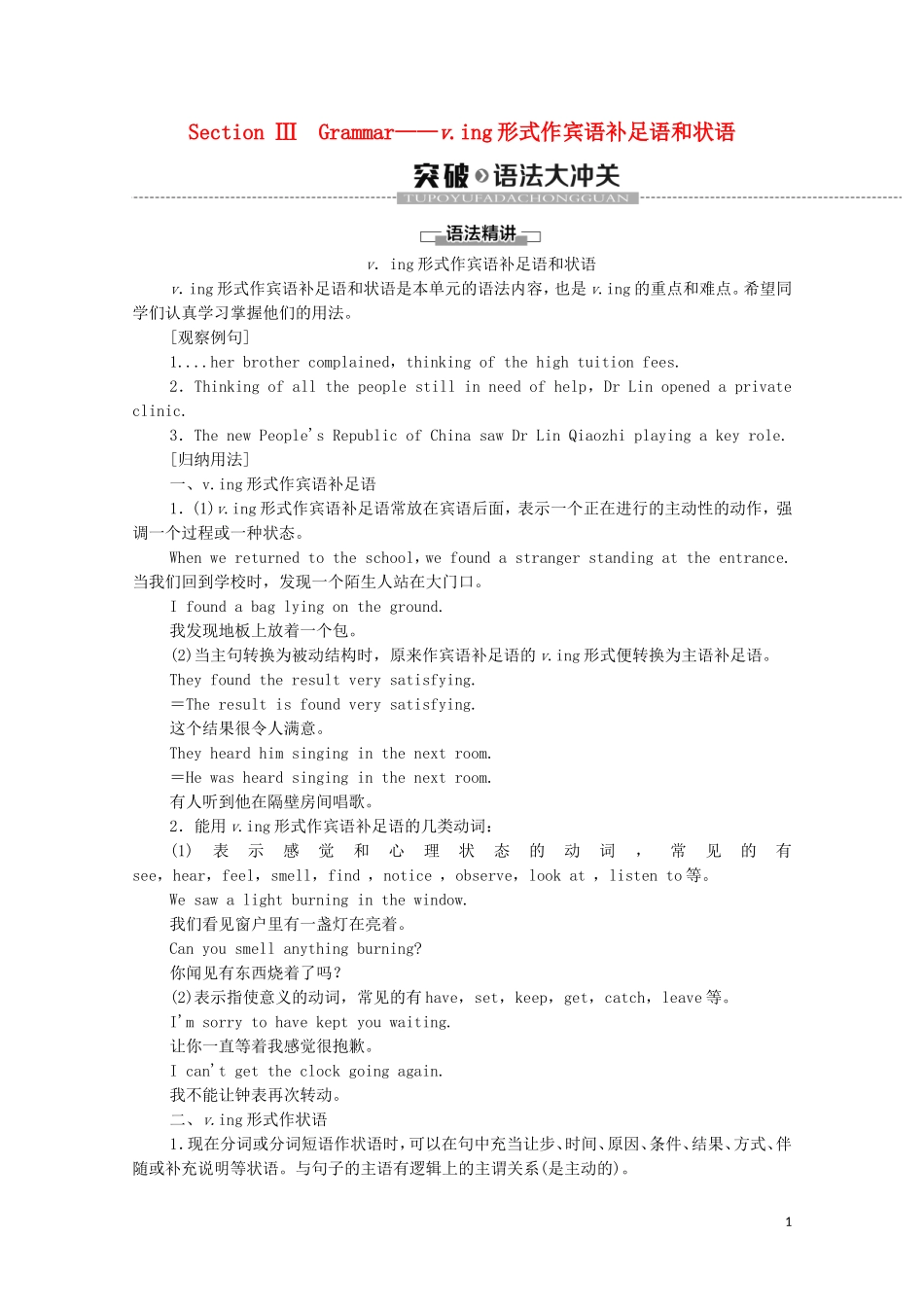Section Ⅲ Grammar——v.ing 形式作宾语补足语和状语v.ing 形式作宾语补足语和状语v.ing 形式作宾语补足语和状语是本单元的语法内容,也是 v.ing 的重点和难点。希望同学们认真学习掌握他们的用法。[观察例句]1....her brother complained,thinking of the high tuition fees.2.Thinking of all the people still in need of help,Dr Lin opened a private clinic.3.The new People's Republic of China saw Dr Lin Qiaozhi playing a key role.[归纳用法]一、v.ing 形式作宾语补足语1.(1)v.ing 形式作宾语补足语常放在宾语后面,表示一个正在进行的主动性的动作,强调一个过程或一种状态。When we returned to the school,we found a stranger standing at the entrance.当我们回到学校时,发现一个陌生人站在大门口。I found a bag lying on the ground.我发现地板上放着一个包。(2)当主句转换为被动结构时,原来作宾语补足语的 v.ing 形式便转换为主语补足语。They found the result very satisfying.=The result is found very satisfying.这个结果很令人满意。They heard him singing in the next room.=He was heard singing in the next room.有人听到他在隔壁房间唱歌。2.能用 v.ing 形式作宾语补足语的几类动词:(1)表示感觉和心理状态的动词,常见的有see,hear,feel,smell,find ,notice ,observe,look at ,listen to 等。We saw a light burning in the window.我们看见窗户里有一盏灯在亮着。Can you smell anything burning?你闻见有东西烧着了吗?(2)表示指使意义的动词,常见的有 have,set,keep,get,catch,leave 等。I'm sorry to have kept you waiting.让你一直等着我感觉很抱歉。I can't get the clock going again.我不能让钟表再次转动。二、v.ing 形式作状语1.现在分词或分词短语作状语时,可以在句中充当让步、时间、原因、条件、结果、方式、伴随或补充说明等状语。与句子的主语有逻辑上的主谓关系(是主动的)。1Not coming on time, he was punished.= Because he didn't come on time,he was punished.(原因)因为没有按时来,他受到了惩罚。Reading the book, he nodded from time to time. = While he was reading the book,he...


